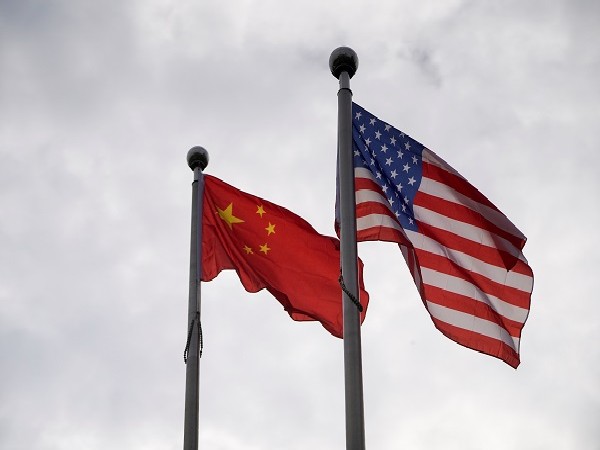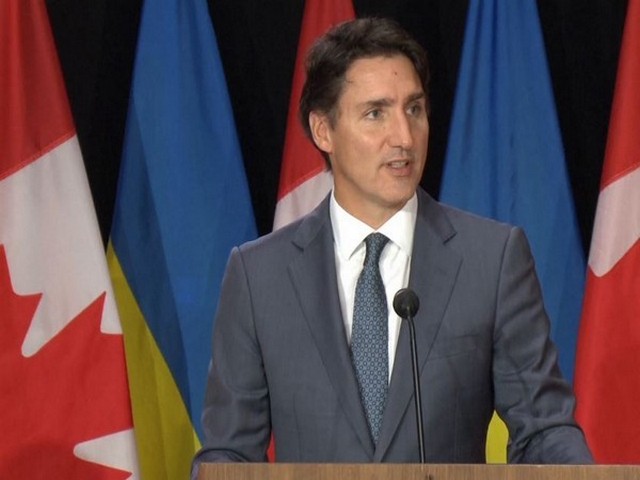The situation of US-China defense talks
Jun 01, 2024
Singapore, June 1: On the sidelines of the Shangri-La Dialogue taking place in Singapore, US Secretary of Defense Lloyd Austin and Chinese Defense Minister Dong Jun had talks yesterday, May 31.
This is the first direct talk between the defense ministers of the two countries since 2022. At the Shangri-La Dialogue taking place at the same time last year, Washington proposed a talk between Secretary Austin and Mr. His Chinese counterpart at that time was Mr. Ly Thuong Phuc. However, Beijing rejected Washington's proposal.
Taiwan focus
According to the Pentagon's announcement, Secretary Austin expressed concern about the Chinese military's "provocative" activities. Recently, China conducted major military exercises to surround Taiwan and its remote islands. There are opinions that the exercise is aimed at preparing to attack Taiwan militarily.
Mr. Austin added that Beijing "should not use Taiwan's political transition as an excuse for coercive measures."
In response, General Dong Quan warned the US not to interfere in China 's affairs with Taiwan. After the meeting, a Chinese Defense Ministry spokesman said Washington's approach toward Taiwan was sending a "wrong signal" to "separatist forces" in Taipei.
Specifically, Minister Dong was referring to Washington congratulating Mr. Lai Thanh Duc on taking office as leader of Taiwan on May 20, and at the same time sending a delegation to attend the ceremony.
The conversation between Minister Austin and General Dong lasted about 75 minutes, longer than expected. However, despite the tense atmosphere, both sides also sought to stabilize relations.
The Pentagon boss emphasized the importance of maintaining open channels of communication between the two countries' armed forces, and "welcomed" plans to convene a working group to handle media crises at the end of the year. this year. General Dong also said that bilateral relations should be treasured and both sides should not "smear the other side". Beijing described the talks as an example of "positive, realistic and constructive" efforts.
Also related to the talks, according to Nikkei Asia , Beijing reiterated China's position on the war in Gaza, called for a ceasefire and argued that the US should be responsible. Meanwhile, Washington said Secretary Austin "discussed Russia's military attack on Ukraine" and China's role in supporting Russia's defense industrial base.
Important conversation
Responding to Thanh Nien last night on May 31, Dr. Satoru Nagao (Hudson Research Institute, USA) analyzed there are 3 reasons why the conversation is important for both sides.
First, in the short term, the talks take place when the US is spending a lot of resources on Ukraine and Israel. At the same time, the administration of US President Joe Biden also needs to spend time for the upcoming presidential election in the country. So now is an opportunity for China to maximize its activities in the East Sea, East China Sea and Taiwan Strait with many escalating developments. Washington wants to control that escalation.
Second, in the medium term, this negotiation takes place to resolve concerns about the Taiwan situation. Beijing is promoting its military power and increasing military pressure against Taiwan. There are even many opinions that Beijing is about to use military power to unify Taiwan.
Third, in the long term, talks take place when the balance of missile power changes. Because China is strongly upgrading its missile arsenal, with missiles DF-17, DF-21, DF-26... which are a big threat to US forces in this area. In response, in April, the US announced the deployment of a new medium-range missile launch system in the Philippines.
Amid these tensions, according to Dr. Nagao, the two sides held talks to have an opportunity to discuss to avoid miscalculations. "However, such a negotiation is not a strong message to China," Dr. Nagao analyzed.
Source: Thanh Nien Newspaper








